Winemaking is not a field that has ever drawn a large number of African-American winemakers or winery owners, and it is not a field that has been particularly hospitable to them.
According to some estimates, no more than 1% of the country’s wineries are owned in whole or in part by Blacks or have a Black winemaker. African-American winemaker Phil Long of Longevity Wines in California’s Livermore Valley, president of the Association of African American Vintners, thinks even that estimate is too high, believing that the percentage is more like 0.1%. Whatever the reality, it’s undeniable that the industry is overwhelmingly white.
Blacks who do venture into the industry often describe having trouble getting financing for their projects or being taken seriously – or accepted at all – for their talents because they don’t “look like a winemaker.” (Upscale restaurant kitchens aren’t typically receptive to Black chefs, either, but these are 24 Black chefs you should know.)
One issue is that wine has not typically been an important part of the Black cultural experience. “There just isn’t enough education and exposure to winemaking for people of color,” Phil Long told USA Today. In addition, as the Washington Post noted in a recent story, “A major entry obstacle for people of color interested in the wine profession is money. It is expensive to learn about wine, from tasting rare, famous bottlings to taking classes for professional certifications.”
There’s also a geographical issue: Most of the cities with the largest Black populations in America are nowhere near major wine-growing regions, so opportunities for vineyard work – an entryway to winemaking for many – are rare. As Marcia Jones, whose Urban Connoisseurs supports Black-owned wineries (and who hosts an annual International Winemakers Summit focused on vintners of African descent around the world), observed to USA Today, “What distinguishes African American winemakers is that we didn’t have skin in the game early on.” (These are the states with the most and fewest wineries per capita.)
Wine is seductive, however, and many African-Americans have fallen in love with it so strongly that they’re willing to persevere in the face of adversity to learn the winemaker’s art, establish their own vineyards and wineries, and take their rightful place among the nation’s best wine producers.
To assemble a partial list of wineries owned by Blacks or multi-racial couples – there are others worth considering, too – 24/7 Tempo consulted the websites of the Association of African-American Vintners and Black Vines, as well as articles in Ebony, Black Enterprise, Wino Noire, VinePair, Wine Enthusiast, USA Today, and The Sophisticated Life.
Many of the wineries on our list are in major California or Oregon wine regions, but you’ll also find operations in Kansas, Arizona, New York City, and other places you might not expect.
Laws regarding the shipment of wines across state lines in America are complicated and often illogical, but many of these wineries can probably fulfill online orders and ship to your state. Check their individual websites for details.
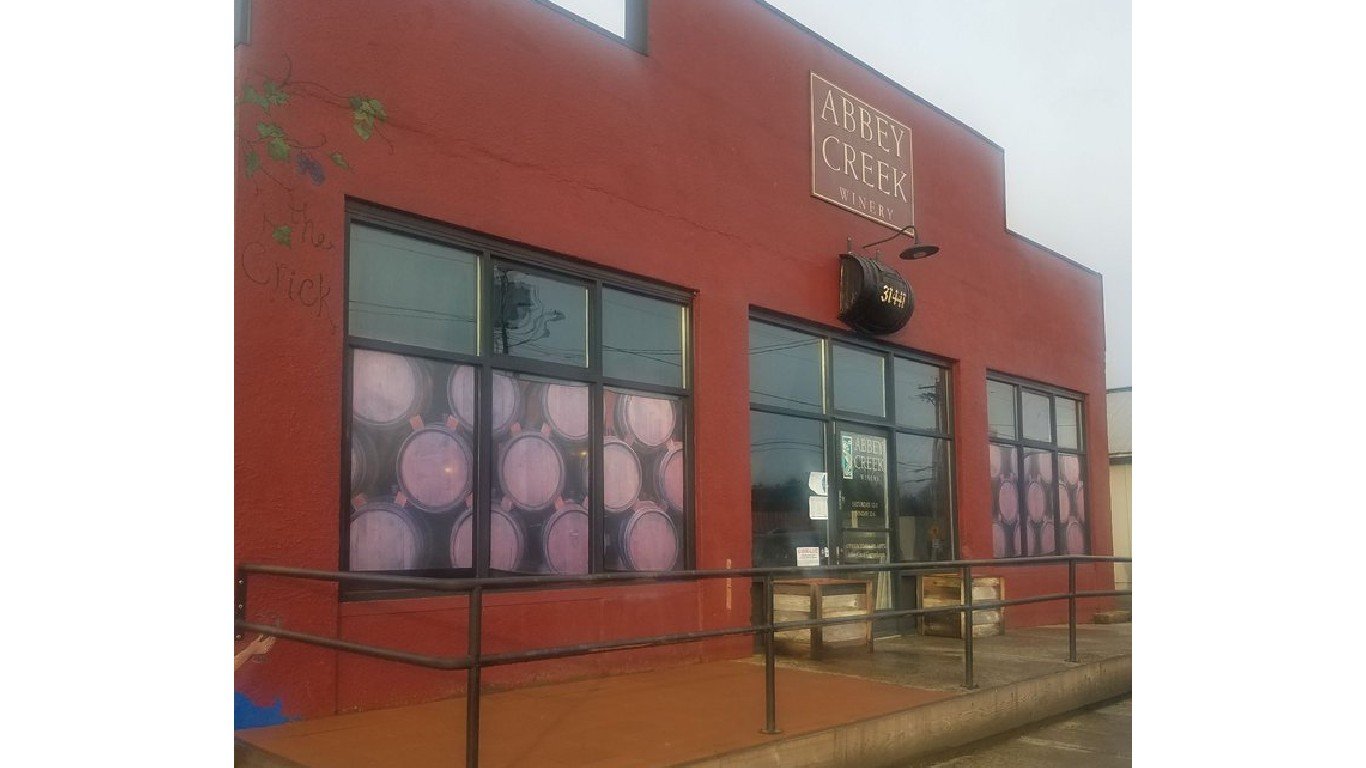
Abbey Creek Vineyard
> Location: North Plains, OR
> Owner: Bertony Faustin
> Sample wines: Pinot Noir Rosé, P.O.P. Ruby Port
Born in Brooklyn to Haitian-American parents, Bertony Faustin moved across America as a young man, intending to end up in California. A detour took him to Oregon, where he met the woman he would marry and settled down. He was working as an anesthesia technician at Oregon Health & Sciences University when his father died in 2007.
The event made him reevaluate what he wanted to do with his life. He wasn’t a drinker, of wine or anything else, but his wife’s family owned a few acres of land planted with grapes for tax purposes. He bought them and upgraded the vineyard, eventually expanding it, thinking that if the wine thing didn’t work out, he could always sell raisins. It did work out, and the self-taught Faustin has become an important figure in the Oregon wine scene.
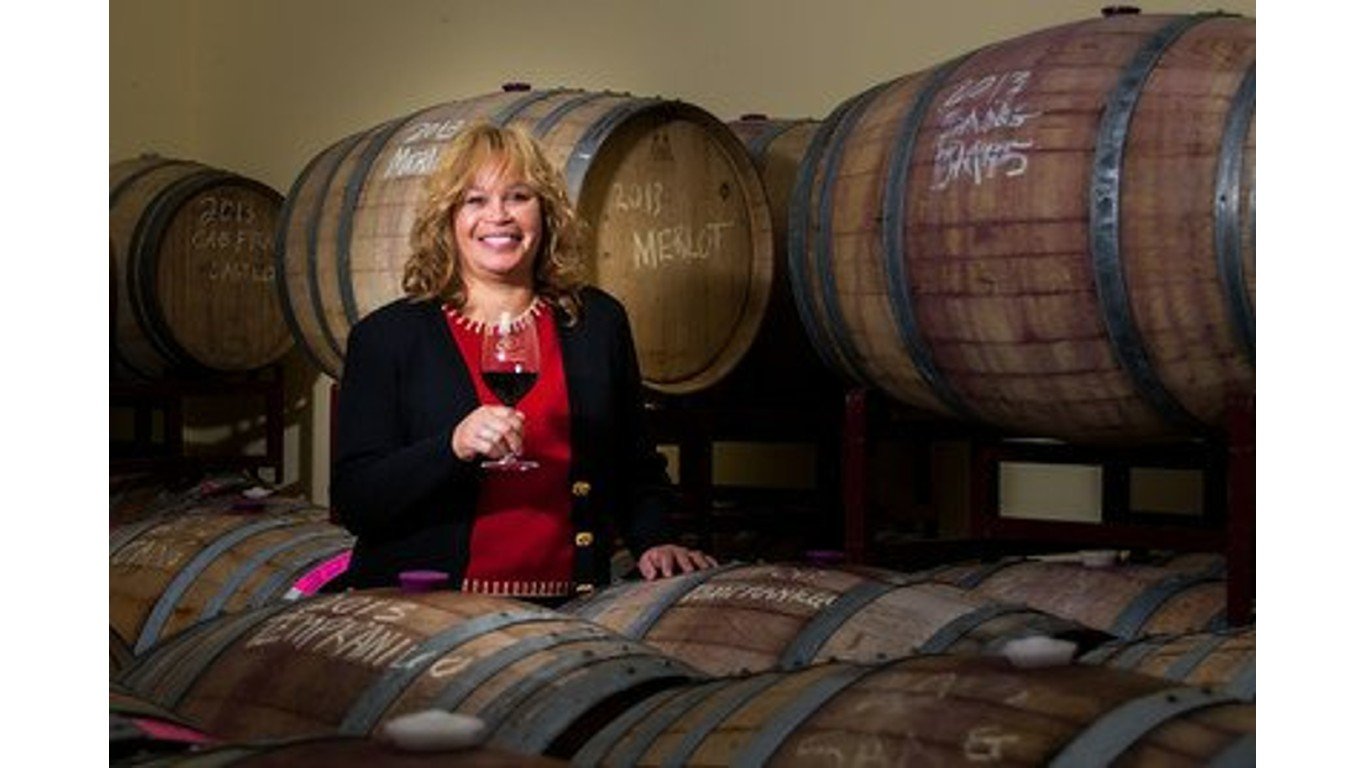
Altopiano Vineyard & Winery
> Location: Escondido, CA
> Owner: Denise Clark
> Sample wines: Vermentino, Primitivo
Denise Clark fell in love with Italian wine on a trip to Tuscany in 2007. A few months after they’d returned home, she and her husband, Peter, had to flee their home in northern San Diego County as a wildfire approached. The blaze spared their house but destroyed their avocado grove. Instead of replanting, they decided to convert it to a vineyard.
Today, Denise is one of the few Black women making wine in the United States, producing a range of well-reviewed wines from Italian and French varietals – some of them silver medal-winners at the San Francisco Chronicle’s annual wine competition.
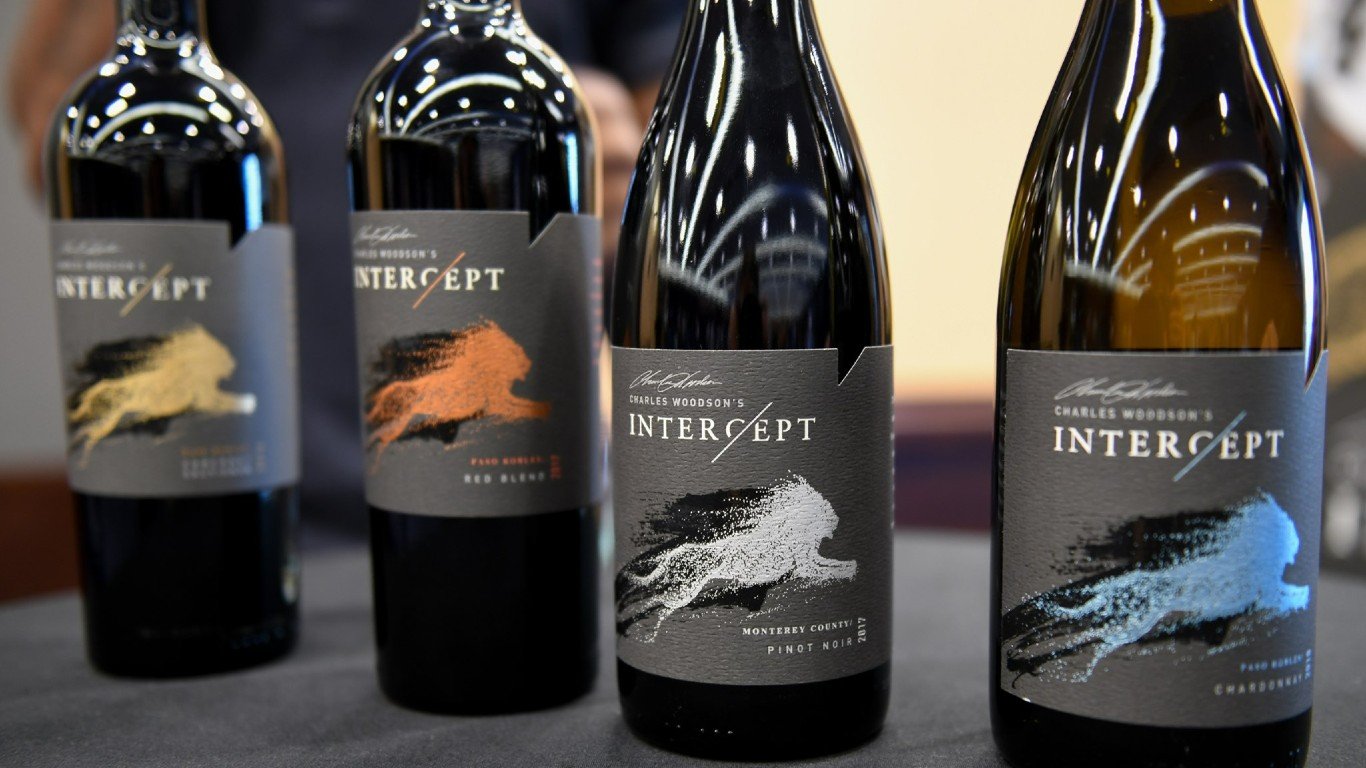
Charles Woodson’s Intercept
> Location: Paso Robles, CA
> Owner: Charles Woodson
> Sample wines: “Fumble” Cabernet Sauvignon, Limited Edition Hall of Fame Cabernet Sauvignon
Former Oakland Raiders and Green Bay Packers defensive back Charles Woodson fell in love with wine at a Raiders training camp in the Napa Valley. In 2001, with the help of Robert Mondavi winemaker Rick Ruiz, he made his first barrel – a merlot – and in 2005, he launched the Napa Valley winery he called TwentyFour (his number with the Raiders), producing small quantities of Cabernet Sauvignon and Cabernet Franc at $85 a bottle.
After he retired from the NFL in 2015, he rethought his wine business and transitioned to a Central Coast operation called Intercept – presumably in reference to his 65 career interceptions. Today it produces Cabernet Sauvignon, Pinot Noir, and Chardonnay – and in 2019, he added Woodson’s Bourbon Whiskey to his portfolio.
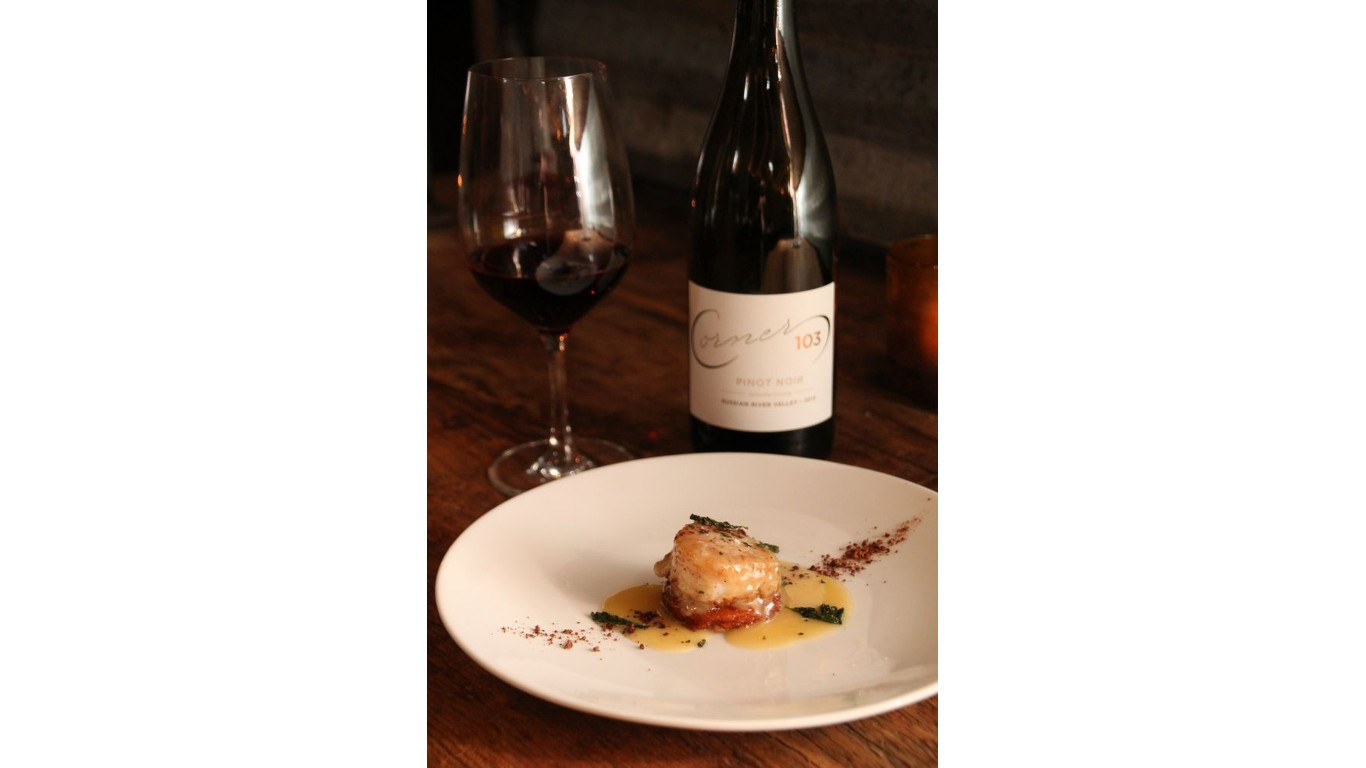
Corner 103
> Location: Sonoma, CA
> Owner: Lloyd Davis
> Sample wines: Carneros Albariño, Sonoma Mountain Malbec
Working in the banking industry in New York City, Lloyd Davis became the financial advisor to a major wine retailer, and that ignited his passion for wine. In 2008, he left banking to take over Sam and Vicki Sebastiani’s financially troubled Viansa winery (the Sebastianis’ sons later reclaimed ownership).
In 2015, he opened his own operation, Corner 103, producing wines from all over Sonoma County and presenting them in a well-equipped visitors’ center on Sonoma Square.
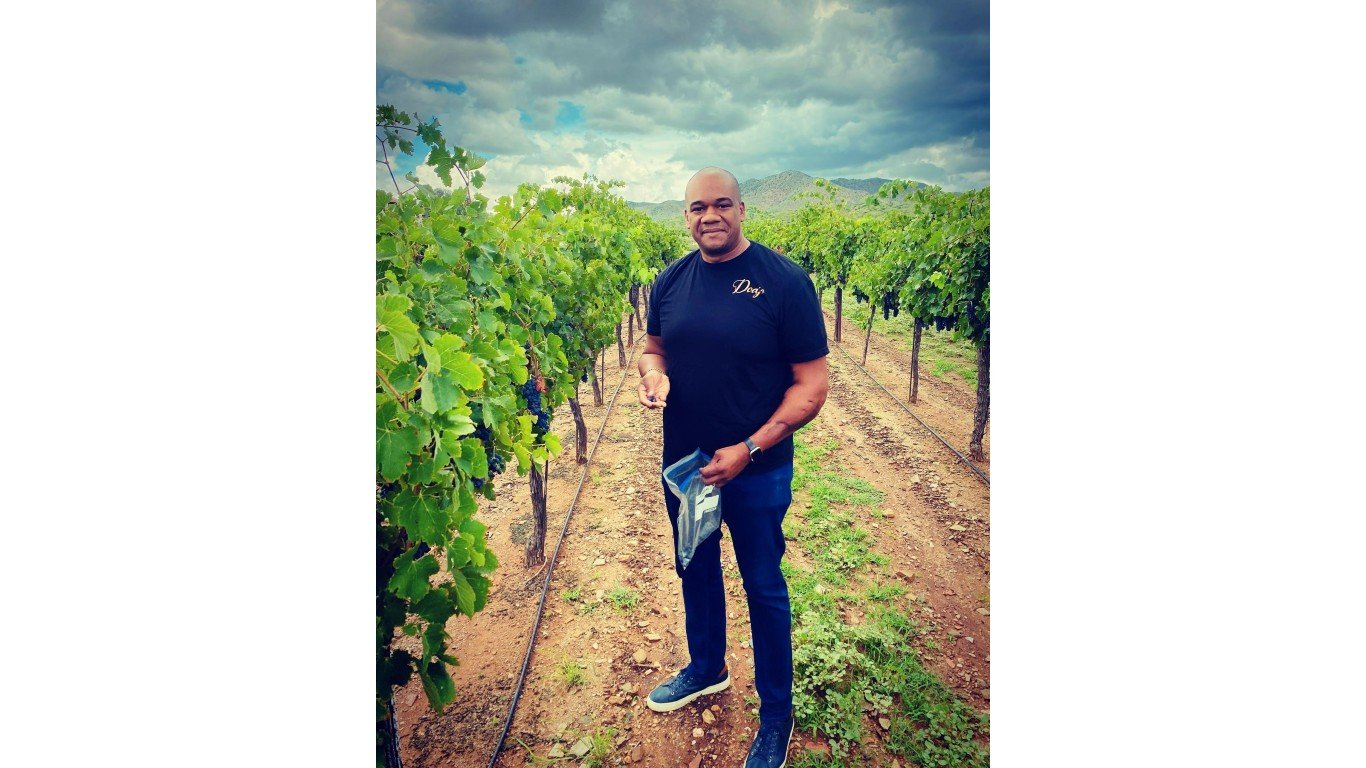
Coronado Vineyards (Escaso Vinos, Conquistador)
> Location: Willcox, AZ
> Owner: Doajo Hicks & Roxanne Peterman Hicks
> Sample wines: Escaso Vinos Dry Riesling, Coronado Estate Sangiovese
The first modern commercial winery in Arizona – a state not usually thought of for its vinicological efforts – opened only in 1983. Today, there are more than 120 producers there, many turning out excellent wine.
On the Coronado website, the Hickses – two academics from St. George, Utah – describe themselves as “the only award-winning African & Native American family to own a vineyard in Arizona.” They’ve been in charge since early 2020, when they bought the 14-year-old operation from founders Mark and Jacque Cook.
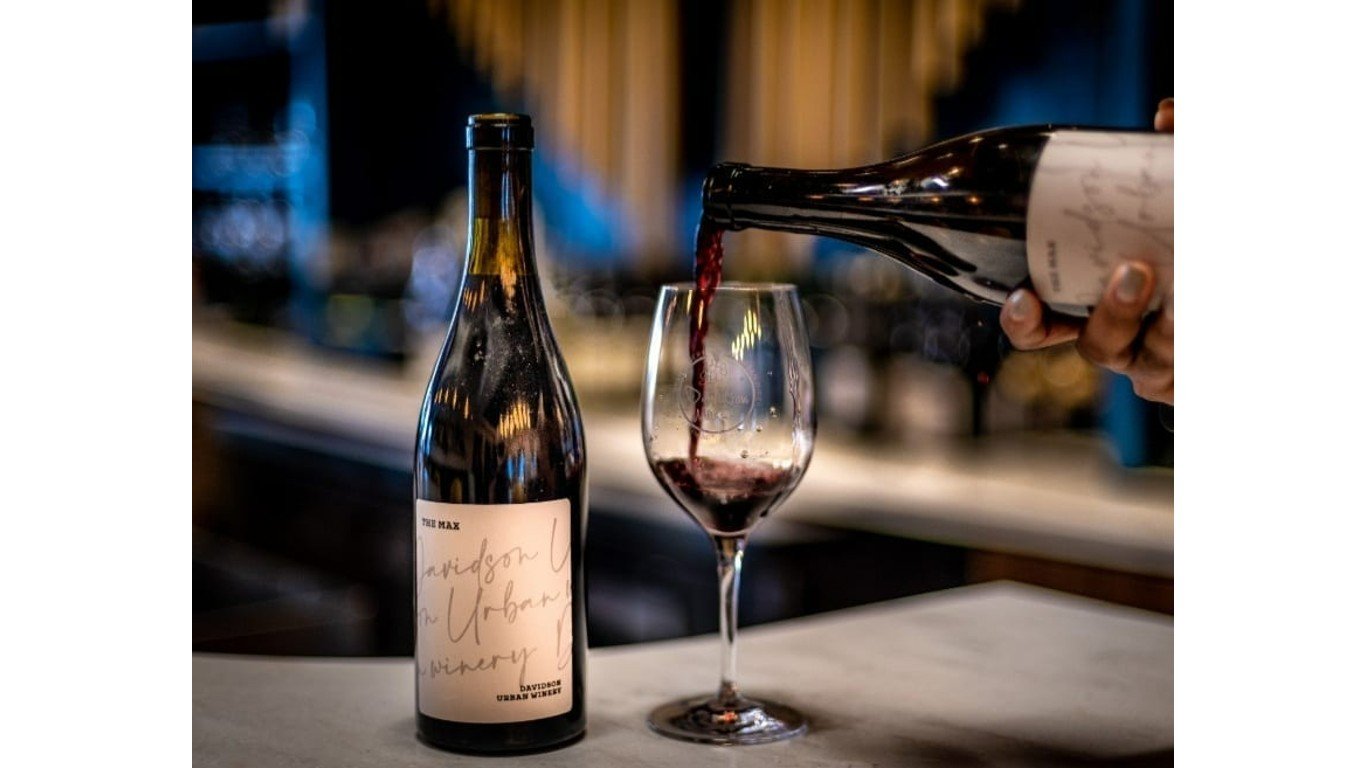
Davidson Wine Co.
> Location: Davidson, NC
> Owner: Lindsey Williams
> Sample wines: Southern Belles (California Chardonnay), The Raeford (North Carolina Nebbiolo)
This self-described “urban winery” was founded in 2019 in the Charlotte suburb of Davidson by former attorney Lindsey Williams, who fell in love with wine on a visit to Tuscany and decided that she wanted “to bring affordable and locally made wine options” to the community.
At her Davidson location, she operates a wine-friendly bistro. The wines are made in nearby Cornelius, using some North Carolina grapes (the state has a rapidly improving wine scene) as well as some sourced from a grape-importing company in California.
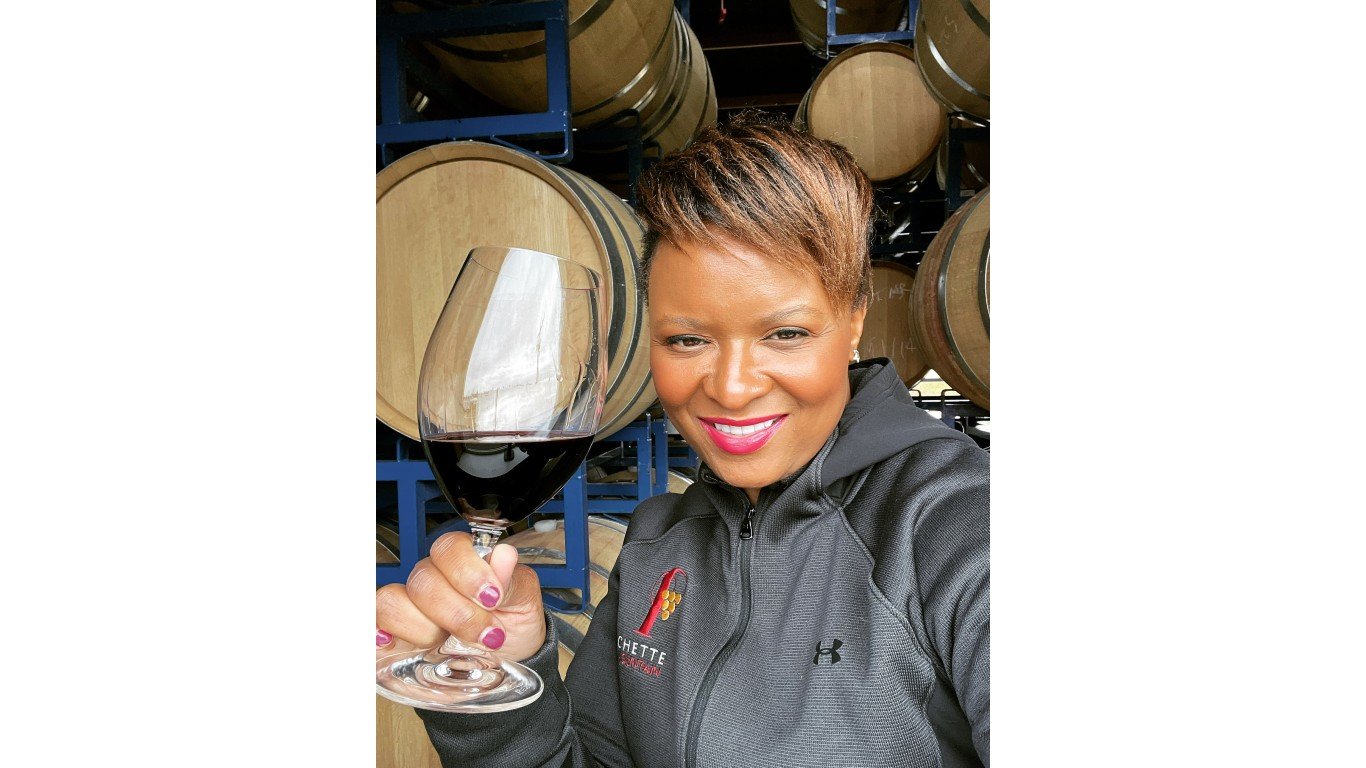
Frichette Winery (Sashay Wines)
> Location: Benton City, WA
> Owner: Greg & Shae Frichette
> Sample wines: Artz Sémillon, Carménère
According to the Frichette website, Washington-born Greg Frichette and his South Carolinan wife, Shae – both of whom came from farming families – “wanted to create a business that would give them goosebumps.” Many a wine-business pro would readily agree that they chose the right field.
The Frichettes share winemaking duties, with Greg taking the lead, but Shae has noted that her contributions are often disregarded “because my husband [who’s white] may fit the profile of what a winemaker looks like a bit more.” That hasn’t stopped her from launching her own label, Sashay Wines, with an off-dry rosé as her debut wine.

Gotham Winery (Oson Wine Cellars)
> Location: New York City, NY
> Owner: Kwaw Amos
> Sample wines: Cabernet Sauvignon, Coast to Coast (Merlot/Cabernet Sauvignon from New York & California grapes)
Its headquarters are in New York City (as its name might suggest) and it has winemaking facilities in New York State’s Finger Lakes and North Fork (Long Island) regions. Gotham sources grapes from both the Empire State and California, though, usually vinifying them separately, but marrying them for its Oson Coast to Coast blend.
Winery founder Kwaw Amos, born in West Africa and raised in Connecticut, claims an interest in producing alcohol that dates back to his high school days, when he won a science fair prize for a demonstration of distillation at the age of 13. He grew to love wine, blogging about it while earning an M.B.A. at the University of Chicago, and decided to start making it on his own because, he told Black Enterprise, “I felt there was a disconnect between the wine I was drinking and how it connected to me. I wanted a wine that fit my palette but also a wine that spoke to me as a consumer.”
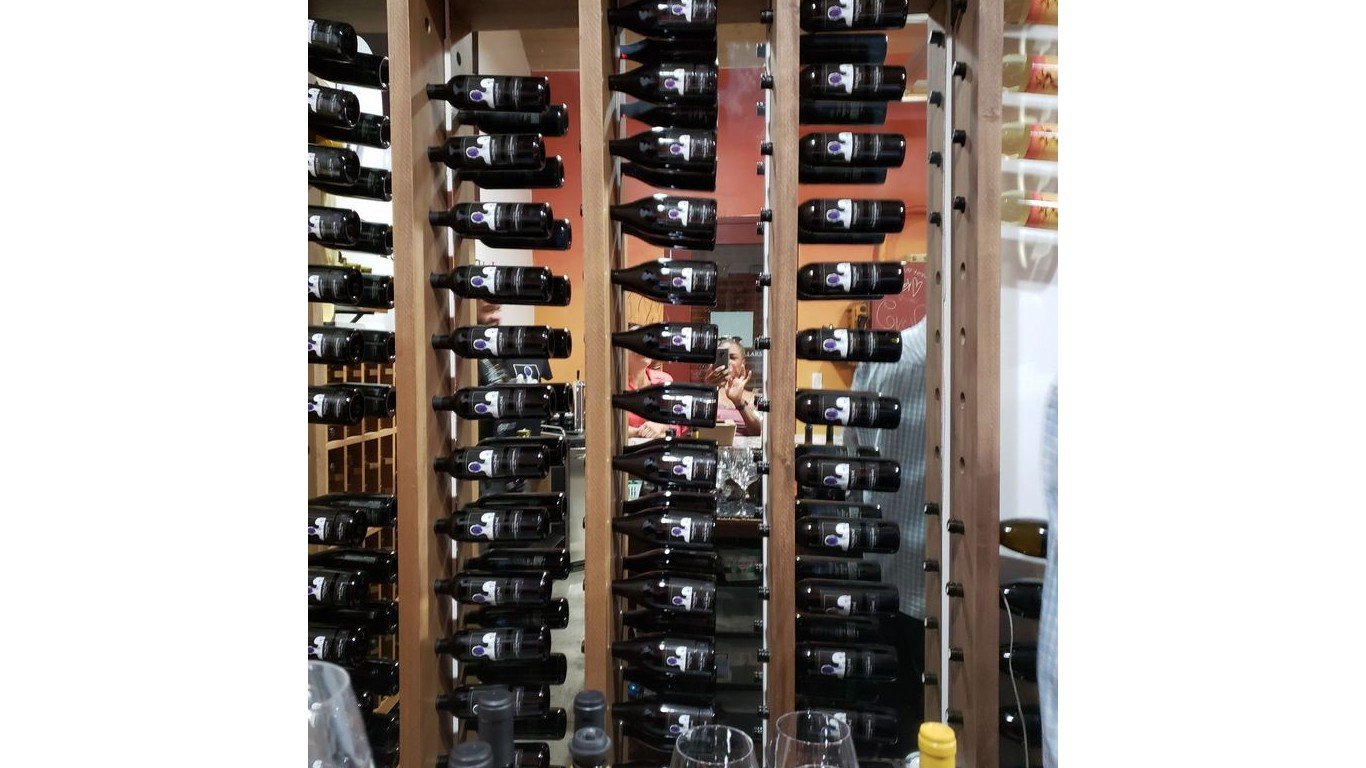
Indigené Cellars
> Location: Paso Robles, CA
> Owner: Raymond Smith
> Sample wines: Ambiente (Sangiovese/Malbec/Merlot), Paso Robles Petit Verdot
After Oakland-born Raymond Smith moved to Paso Robles, in California’s Central Coast wine region, he found work building mobile bottling lines, eventually becoming a owner-operator of the units – essential for small winery operations that don’t have their own facilities. He launched his own winery in 2008.
Though he is in a distinct minority as an African-American winemaker on the Central Coast, Smith told KSBY-TV that he has always felt supported by the local wine community. “Between Black and white,” he added “when it comes down to the wine business, it comes down to good wine or bad wine and that’s that.”
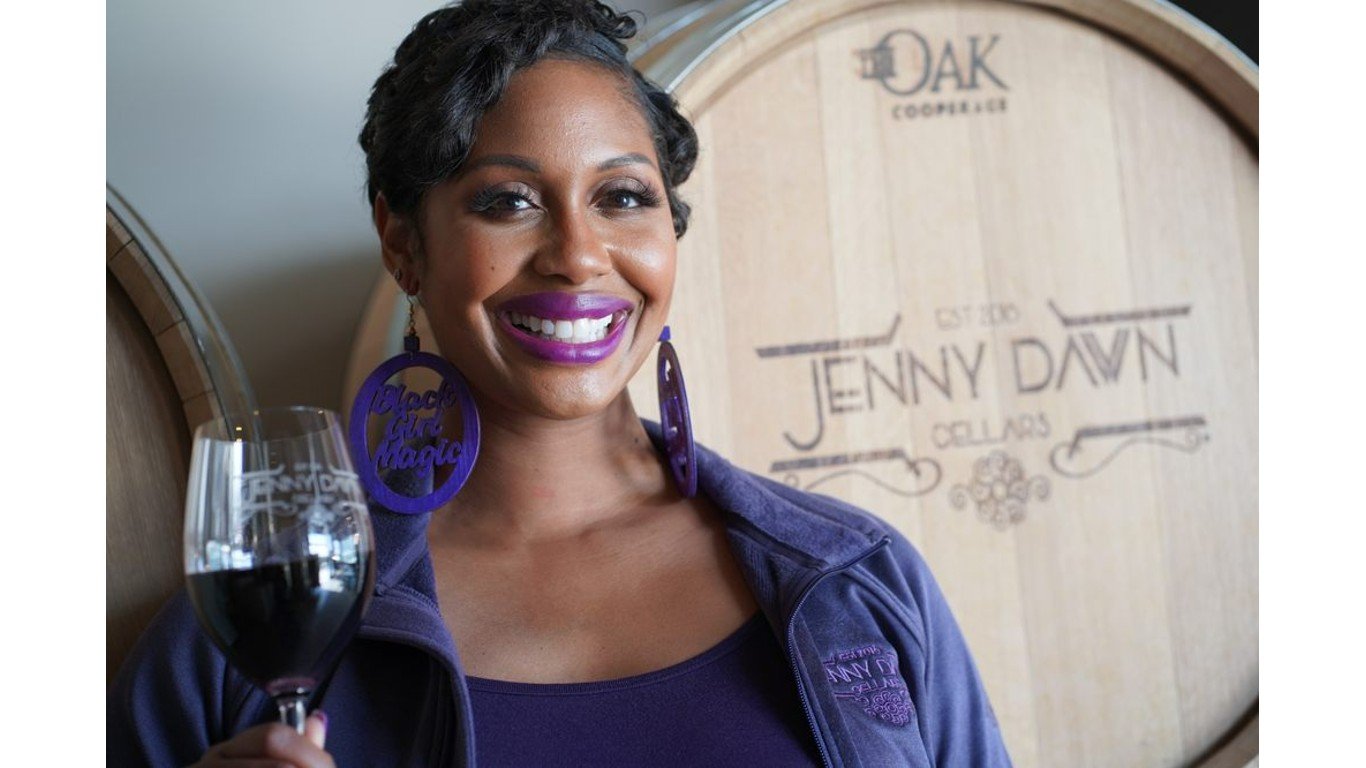
Jenny Dawn Cellars
> Location: Wichita, KS
> Owner: Jennifer McDonald
> Sample wines: Union Station (Chardonnay), Red Caboose Rosé (Crimson Cabernet)
Doing consumer marketing research as a grad student at Kansas State University, Jennifer McDonald thought there’d be a place for an urban winery to serve city-dwellers. After unsuccessfully applying to nine other banks to finance her business – an experience she attributes to skepticism about whether a young black woman could successfully run a winery business in the Sunflower State – she won backing to establish Jenny Dawn in Wichita’s historic Union Station.
She uses both Kansas-grown and California grapes in her wines, which include several sweet and semi-sweet offerings and non-grape fruit wines as well as more familiar dry grape wines.

Legend Vineyard Exclusive (LVE)
> Location: St. Helena, CA
> Owner: John Legend
> Sample wines: Sparkling Brut Blanc de Blancs, Napa Valley Cabernet Sauvignon
Singer-songwriter and actor John Legend – the first African-American to win the coveted EGOT suite of awards – teamed up with wine industry heavyweight Jean-Claude Boisset in 2015 to release a line of LVE (Legend Vineyard Exclusive) wines from the Napa Valley – said to be the fruition of a long-held dream of Legend’s.
Boisset, the scion of a famed Burgundian wine family, owns a number of California wineries, one of which – Raymond Vineyards – is involved with the Legend project.
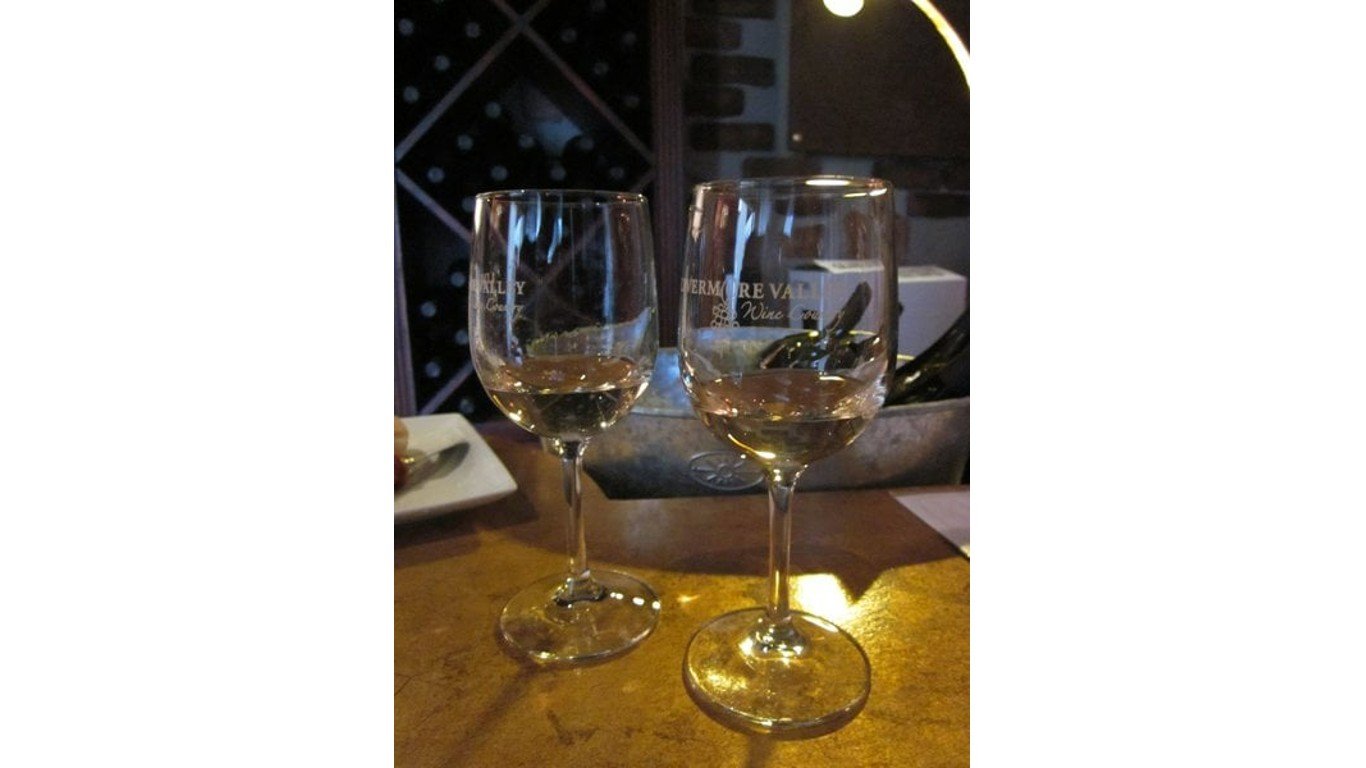
Longevity Wines
> Location: Livermore, CA
> Owner: Phil Long
> Sample wines: Blanc de Noir sparkling wine, Philosophy (Bordeaux blend)
Phil Long and his wife, Debra, were enophiles who started making their own wine in their Livermore garage in 2003. Three years later, they’d grown confident enough in their abilities to try producing it on a (small) commercial scale, using facilities at a nearby established winery. In 2008, they opened a winery of their own.
Ten years later, it was named Livermore Winery of the Year – an accomplishment, considering that there are more than 50 wineries in the region. (Sadly, a few days after the honor was conferred, Debra died of pancreatic cancer.) In 2019, Long teamed up with the massive Bronco Wine Company, allowing him to produce his vintages on a much larger scale.

Maison Noir Wines
> Location: McMinnville, OR
> Owner: André Hueston Mack
> Sample wines: Other People’s Pinot Gris, Horseshoes & Handgrenades (Oregon Syrah, Washington Cabernet Sauvignon/Merlot)
Onetime French Laundry sommelier André Hueston Mack, who’d worked in finance before deciding that he preferred the restaurant business, founded the winery he originally called Mouton Noir (Black Sheep) in 2007. He told USA Today that he first got interested in wine by – of all things – the way the characters in the sitcom “Frazier” seemed to enjoy sipping it. He described himself to the publication as “a kid who grew up listening to hip hop, punk rock and skateboarded and fell in love with wine.” He is also a designer, whose dramatic black-and-white labels tend to bear imaginative names.
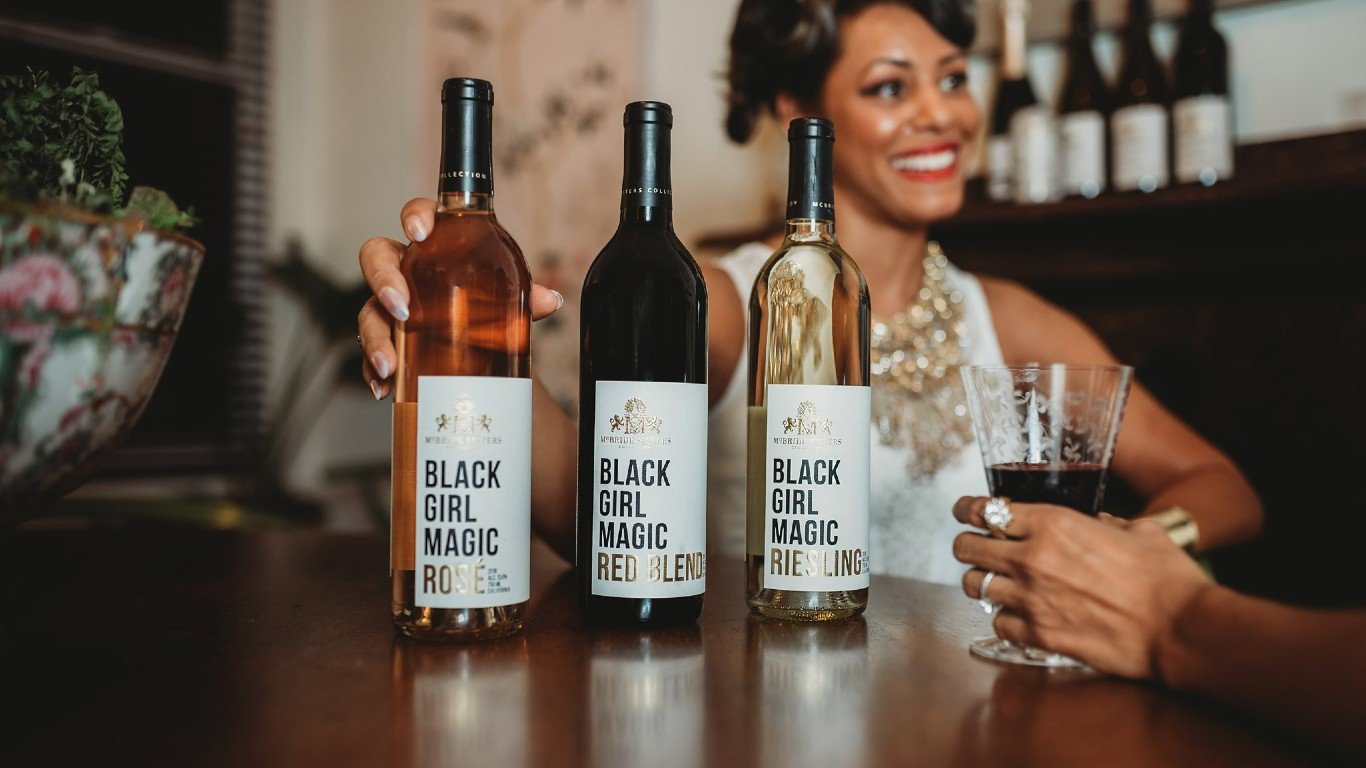
McBride Sisters Collection
> Location: Oakland, CA
> Owner: Robin & Andréa McBride
> Sample wines: Hawke’s Bay New Zealand Sparkling Brut Rosé, Reserve Santa Lucia Highlands Pinot Noir
Talk about a great backstory: Half-sisters Robin and Andréa McBride grew up not knowing each other existed. They had the same father, but Robin was raised in Monterey, California, while Andréa, whose mother was from New Zealand, grew up there. The two reunited in 1999 – and realized that they’d both been living in agricultural areas known for their wines.
The wine business was attractive to them, but, as Andréa told Fodor’s Travel, they had two problems: “The first was that we didn’t know how to make wine and the second was we didn’t have money.” They started by going to New Zealand, convincing some small producers to let them import their wares into the US, and spending enough time there to learn the winemaker’s craft. They now offer a range of wines from both California and New Zealand – including a line of She CAN wines (in, yes, cans), with partial proceeds going to their She CAN Fund, providing professional development scholarships and grants to women in business.
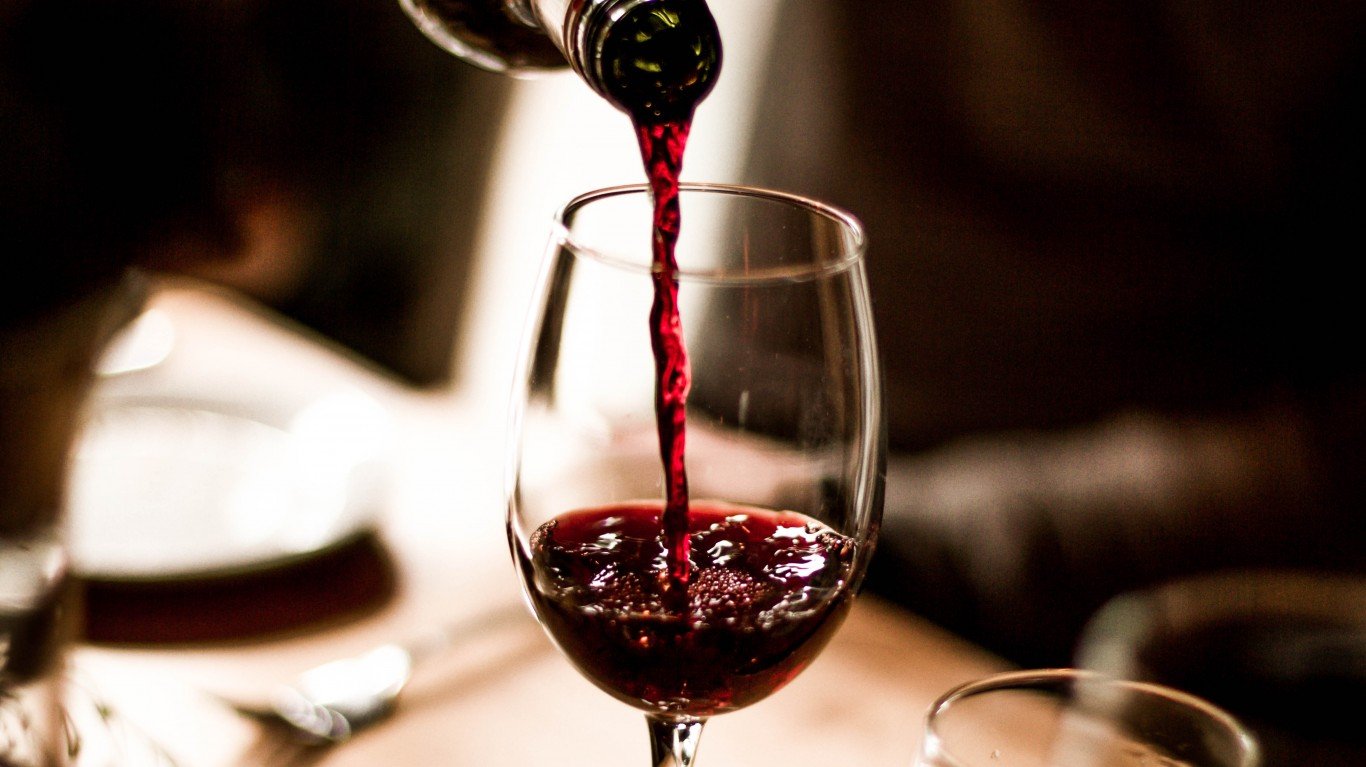
Okapi Wines
> Location: Napa, CA
> Owner: Dan Johnson
> Sample wines: Rosé of Cabernet Sauvignon, Alkimmy Proprietor’s Blend (Zinfandel/Petite Sirah/Merlot)
Dan Johnson was an attorney who handled a legal matter involving Château St. Jean in the Sonoma Valley in the early 1980s, and ended up tasting wine with its then-winemaker, Diсk Arrowood – which sealed his fate. He has remained a practicing lawyer in San Francisco, but in 2006, he and his wife, Kim, bought three acres of potential vineyard land, once a walnut orchard, in the Napa Valley’s Oak Knoll district and planted Cabernet. Seven years later, they released their first wine, from the 2010 vintage.
It hasn’t always been easy going. All winemakers have problems, Johnson told Mother Jones, “But the problem with racism?,” he continued. “Add another 30-pound bag, at least. Instead of carrying three, I have to carry four.”
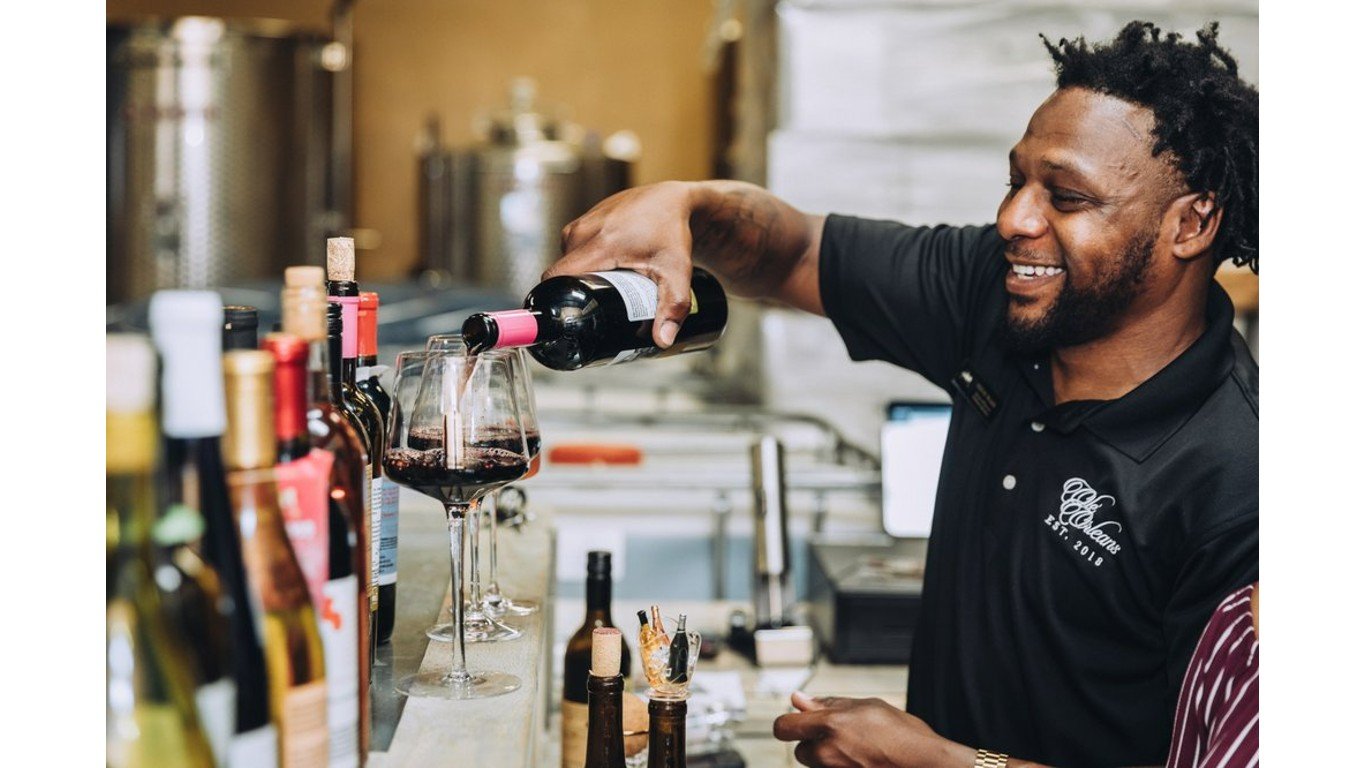
Olé Orleans Wine & Spirits
> Location: New Orleans, LA
> Owner: Kim Lewis
> Sample wines: Gumbeaux Texas High Plains Merlot, Olé Carrollton Semi-Sweet Blanc du Bois
New Orleans might be better-known for Sazeracs and Hurricanes than wine when it comes to alcohol, but that didn’t matter to Kim Lewis. The NOLA native, who had worked in fields including behavioral health and high school special ed, was running a trucking company when she discovered wine on a trip around the U.S. in 2016.
It became a passionate hobby of hers, and she decided to try her hand in the wine business. At first, she bought finished wine to sell under her private label, but then started making her own, using grapes sourced from California, Texas, and Louisiana’s portion of the Mississippi Delta wine region. There may be very few Black women in the wine business in America, but Lewis told USA Today “I don’t ignore my skin color but it’s not a huge selling point. The product has to sell itself.”
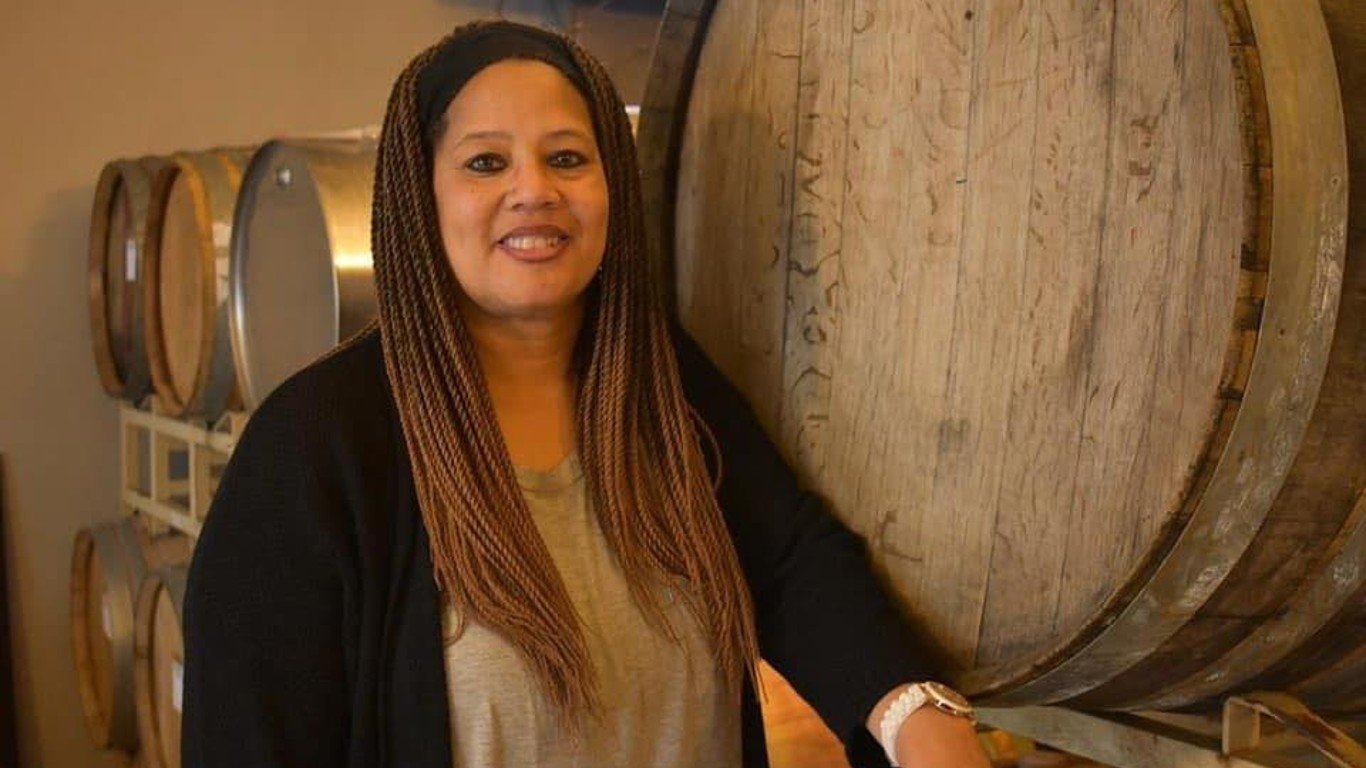
Stoney Wines
> Location: Gresham, OR
> Owner: Donna Stoney
> Sample wines: SisterFriends Chardonnay, Baytani Reserve Pinot Noir
Donna Stoney first discovered wine at home in Texas – drinking Merlot, she remembers, while her friends were drinking shots and longnecks – but never intended to make her own. She moved to Oregon after getting a B.A. in social work and for the next 30 years helped people with intellectual and developmental disabilities, working first for Multnomah County and then for her own agency.
After leaving the county position, though, she began studying wine seriously, eventually meeting Bertony Faustin of Abbey Creek Vineyard, Oregon’s first Black winemaker. She made her first two wines at Faustin’s winery, then went out on her own in 2019.
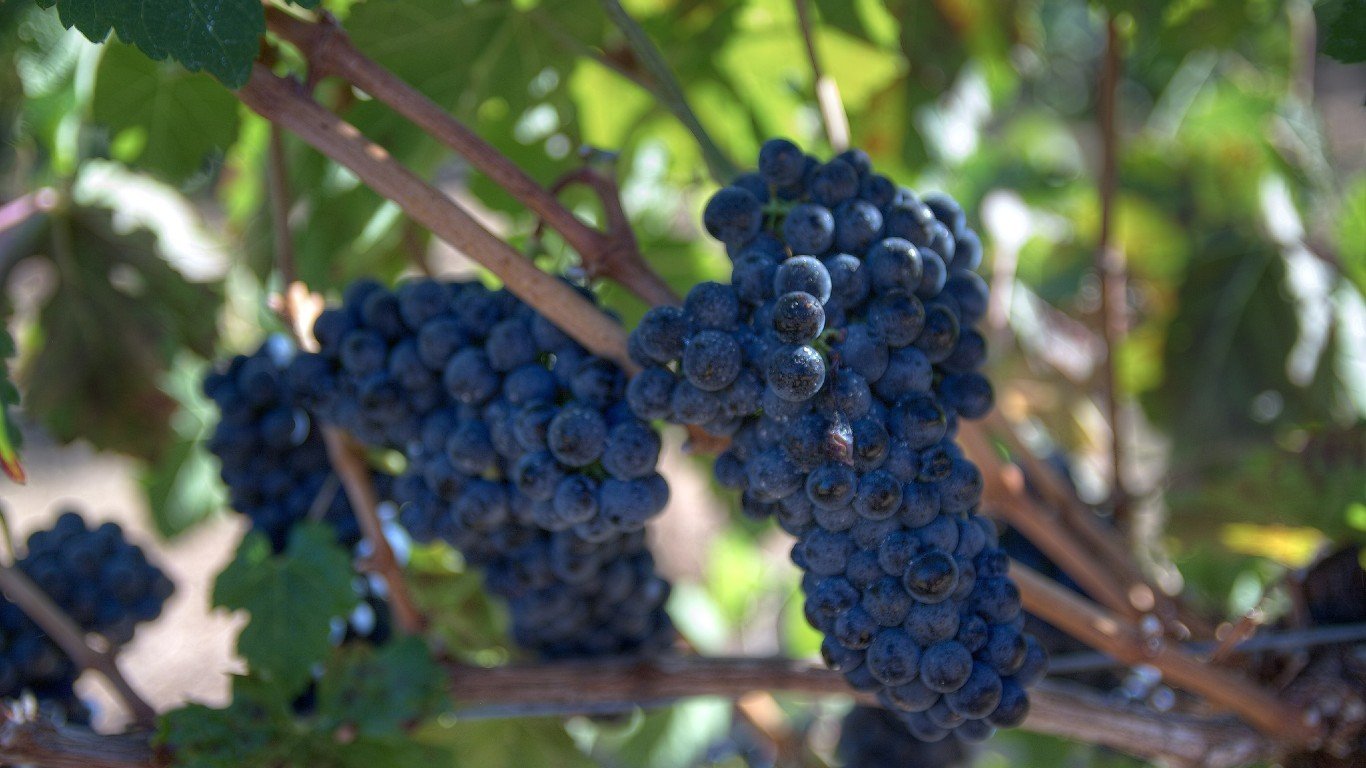
Theopolis Vineyards
> Location: Yorkville, CA
> Owner: Theodora (Theo-Patra) Lee
> Sample wines: Petite Sirah, Theo-Patra’s Cuvée Cérise (Cabernet Sauvignon/Petite Sirah)
Texas-born Theodora Lee, a partner and trial lawyer for Littler Mendelson P.C. in San Francisco, was first exposed to wine through colleagues in the legal profession, some of whom owned vineyards. She liked it well enough to take viticulture classes at the University of California, Davis, famed for its winemaking school.
In 2001, she bought land in Mendocino County’s Anderson Valley, planting vineyards two years later and selling grapes to other winemakers at first. In 2014, she began bottling her own wines, going on to win numerous awards. “I don’t want to be the best Black winemaker [or the] best woman winemaker,” she told the San Francisco Bay Times. “I want to be the best winemaker.”
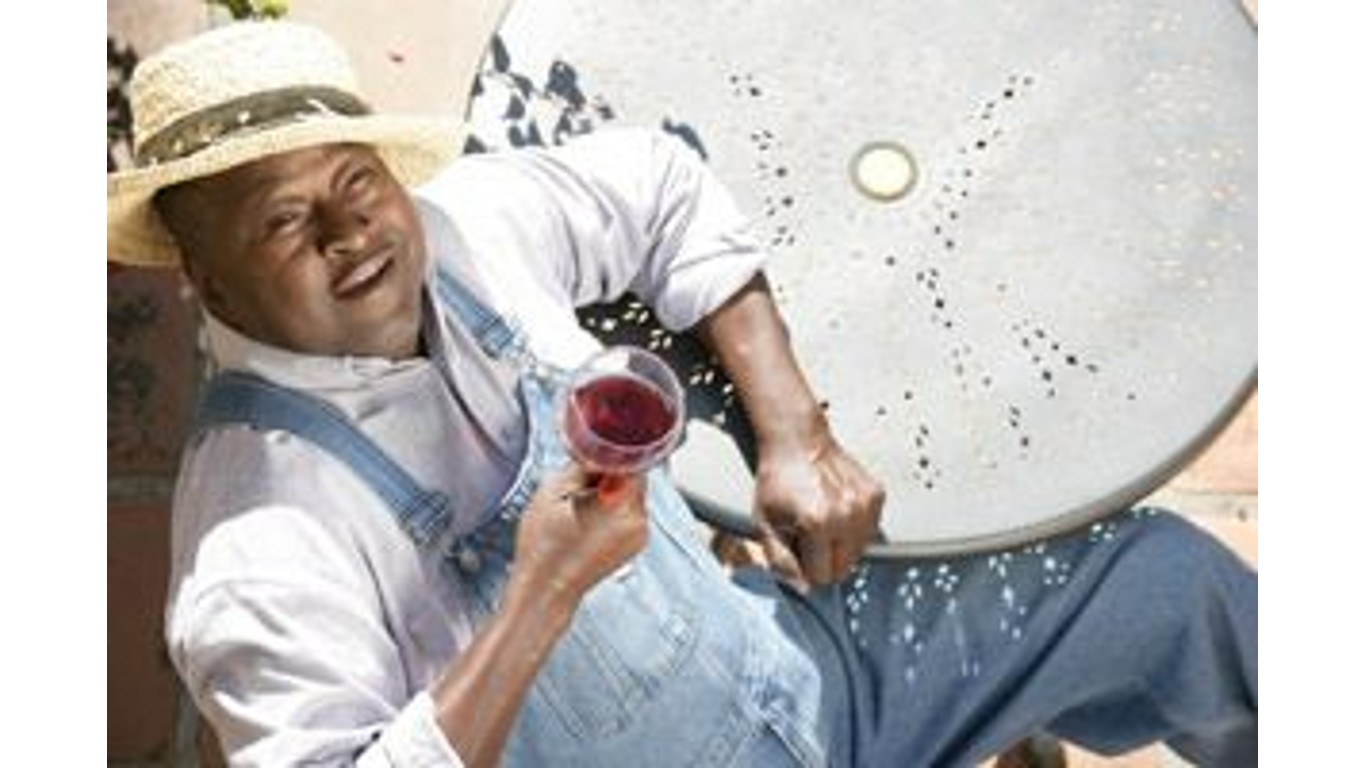
Vision Cellars
> Location: Windsor, CA
> Owner: Mac and Lil McDonald
> Sample wines: White Wine (Sauvignon Blanc/Pinot Gris), Rosella’s Vineyard Santa Lucia Highlands Pinot Noir
“I was born the son of an East Texas moonshiner,” says Edward Lee “Mac” McDonald on his winery website. At the age of 12, he somehow encountered a bottle of Burgundy and his fate was sealed. “All through school I talked about being a winemaker,” he adds. He moved to California when he was 20, and started hanging around the wine scene.
He found little encouragement until he met Charlie Wagner, the legendary founder of Caymus Vineyards in the Napa Valley. He ended up working for Wagner for 15 years, and when he was ready to go out on his Wagner and his son helped him and his wife, Lili, find a vineyard. He released his first wine – a Pinot Noir – in 1997, and in 2003 co-founded the Association of African-American Vintners in an effort to help encourage diversity in the wine business.
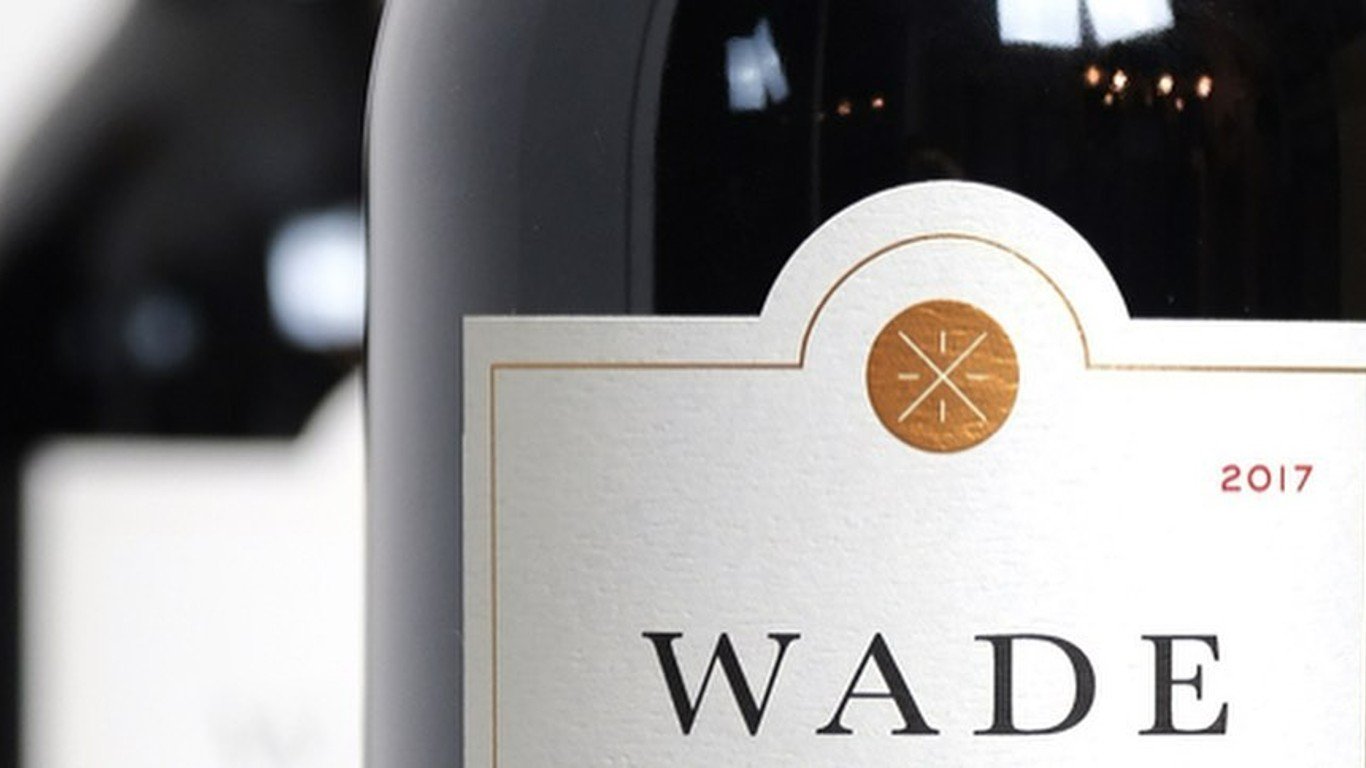
Wade Cellars
> Location: Napa, CA
> Owner: Dwyane Wade
> Sample wines: Three by Wade Napa Valley Cabernet Sauvignon, Oakville Cabernet Sauvignon
Thirteen-time NBA All-Star Dwyane Wade, who spent most of his career with the Miami Heat, credits teammate Alonzo Mourning with introducing him to his first glass of good wine. A subsequent meeting with esteemed Napa Valley winemaker Jayson Pahlmeyer led to a friendship between the two and eventually a professional collaboration.
Their first wine was a 2012 Napa Valley Cabernet, which was originally sold only in China – a big wine market and one that’s mad for professional hoops – but now they sell in the U.S., too.
